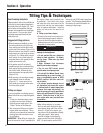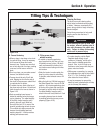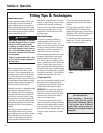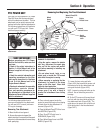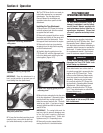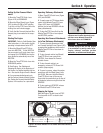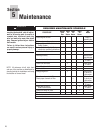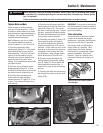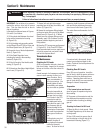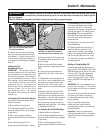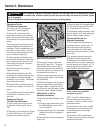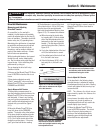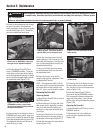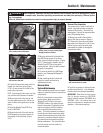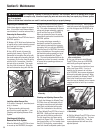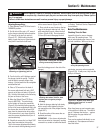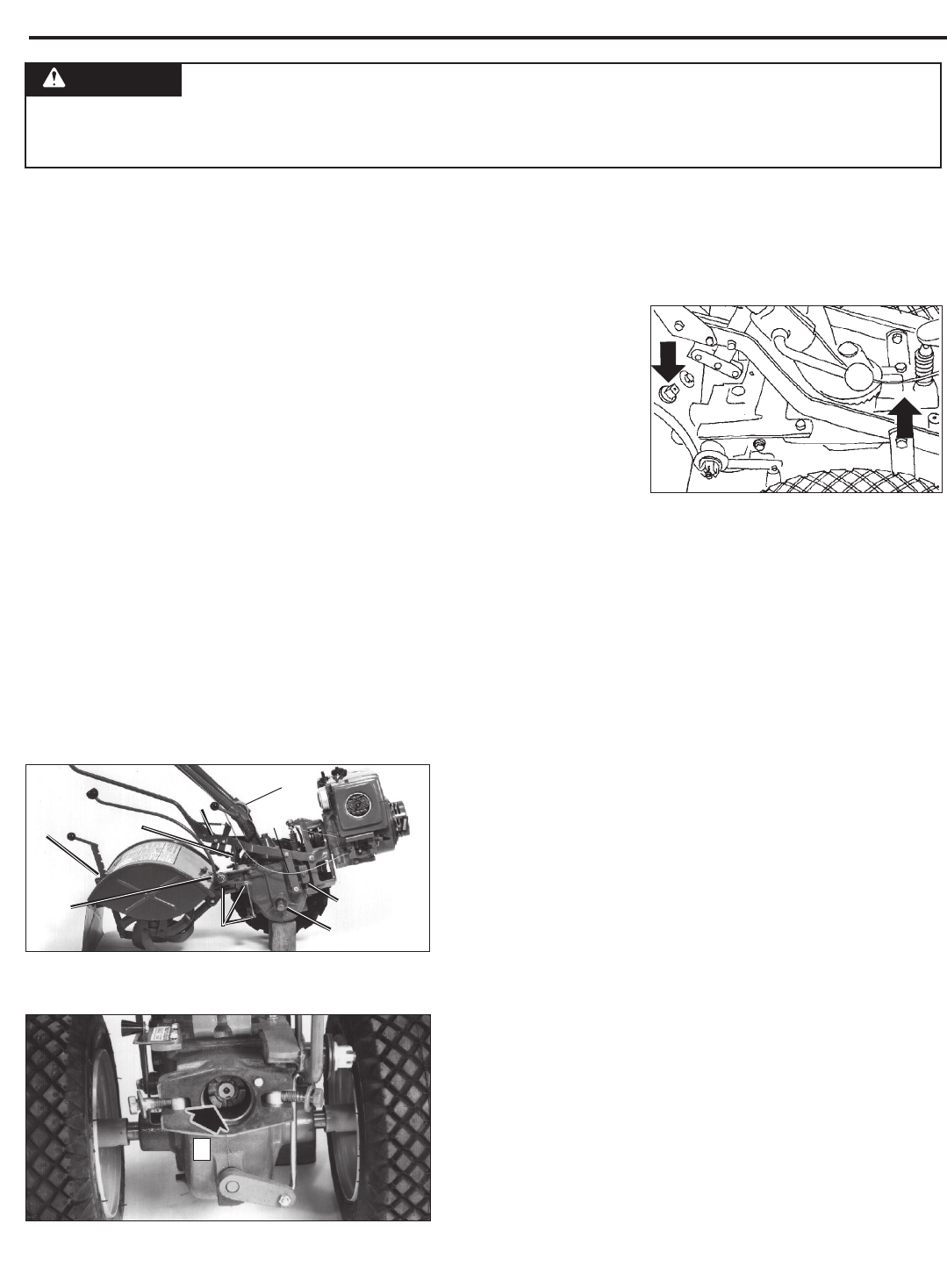
Section 5: Maintenance
IMPORTANT: Do not allow oil or grease to
contact the pulleys, drive belt or reverse
disc. This can cause the belt or disc to
slip on the pulleys.
Lubricate the numbered areas in Figures
5-4 and 5-5, as follows:
1. Oil the wheel shaft between the wheel
hubs and the transmission housing
(A, Figure 5-4).
2. Oil all pivoting and connecting points
on the Wheels/Tines/PTO Drive Lever and
the Wheel Speed Lever (B, Figure 5-4).
3. Grease the face of the belt adjustment
block (C, Figure 5-4).
4. Oil the Depth Regulator Lever,
including the spring in the mounting
bracket (D, Figure 5-4).
5. Oil the full length of the throttle cable
casing (E, Figure 5-4).
6. Oil threads on Handlebar Height Adjust-
ment Lever (F, Figure 5-4).
7. Grease left- and right-side engine
mounting bars at the top, the middle, and
bottom (G, Figure 5-4).
8. Grease the zerk grease fitting located
on the pivot point at the end of the Wheel
Speed Lever (H, Figure 5-4). If Wheel
Speed Lever has a grease fitting on pivot
assembly, apply 2-to-3 strokes of multi-
purpose grease at beginning and end of
tilling season.
9. Keep the PTO access area well-greased
(I, Figure 5-5). If the Tines/PTO Clutch
Lever becomes hard to move, squirt some
oil into its access hole, and work it back
and forth to disperse the oil.
Transmission Gear
Oil Maintenance
Checking for Oil Leaks
At 25-hour operation intervals, check the
tiller for oil leaks. Inspect for oil accumu
-
lations on the tiller or the floor where it’s
stored.
A small amount of oil seepage or wetness
around a shaft opening or cover is no
cause for alarm. But a
heavy concentration of
oil is more serious. You
should tighten all bolts
immediately, and replace
any worn seals or gaskets.
It may be impossible to
determine how much oil
has been lost, so check
the oil levels in the PTO
transmission and the
tine attachment before
using the tiller again. Add
any necessary gear oil.
Serious damage to the
transmission components
can result from operation
when gear oil levels are
low.
If tilling during very hot
weather, the gear oil
may heat up and expand
inside the transmis-
sions. To allow for this oil
expansion, both the power unit transmis-
sion and the tine attachment transmis-
sions have oil relief vents (Figure 5-6).
The vents allow small amounts of oil to
seep out.
If a serious leak is discovered, please
contact your authorized dealer or the
Factory Technical Service Department for
service advice.
Checking Gear Oil Levels
Every 30 hours of operation, check the
gear oil level in both the power unit trans-
mission and the tine attachment trans-
mission. Operating them while low on
gear oil (even briefly) can cause serious
damage to internal components.
Preparation
1. The transmissions must be cool,
since hot gear oil expands and gives a
false reading.
2. The power unit transmission and the
tine attachment transmission must be
connected when checking (or adding)
gear oil.
Checking the Power Unit Oil Level
1. Move the tiller to level ground. Move
the Depth Regulator up so the tines rest
on the ground.
2. Use a 3/8" wrench to remove the oil
level check plug on the left side of the
transmission housing (Figure 5-7).
Figure 5-4: Tiller lubrication points
(wheel removed for clarity).
Figure 5-5: Use grease liberally in PTO access area.
I
E
F
G
D
H
C
B
B
A
30
Figure 5-6: Oil relief vent locations.
Before inspecting, cleaning or servicing the machine, shut off engine, wait for all moving parts to come
to a complete stop, disconnect spark plug wire and move wire away from spark plug. Remove ignition
key, if so equipped.
Failure to follow these instructions can result in serious personal injury or property damage.
WARNING



